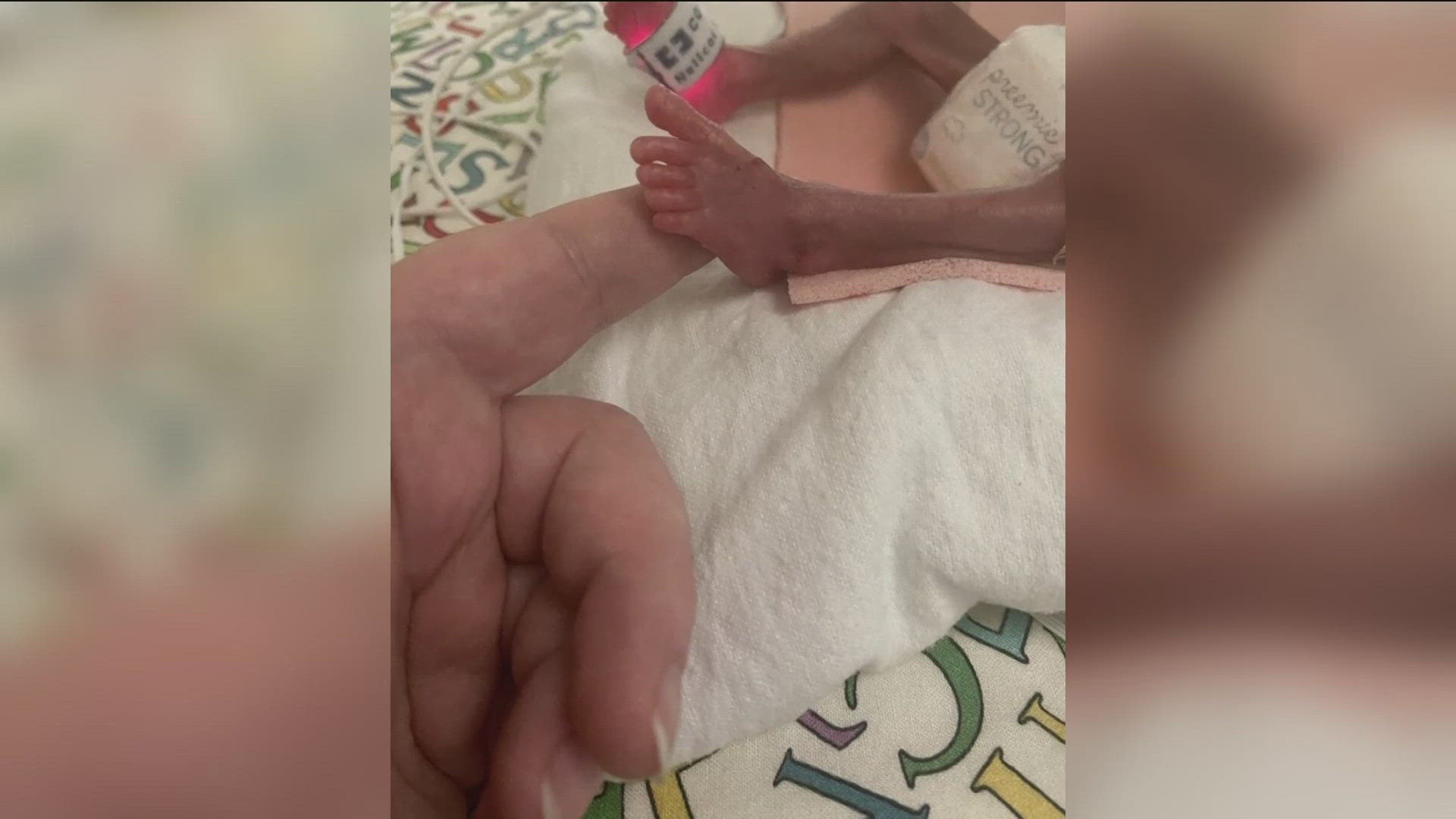SPRINGDALE, Ark. — Between 10% and 15% of babies born in the United States require special care in the Neonatal Intensive Care Unit (NICU). For this Neonatal Intensive Care Awareness Month, Springdale mother Samantha Christiansen shines a light on challenges in the NICU and post-care with her baby.
"At 23 weeks, I went into pre-term labor and was life-flighted to UAMS in Little Rock where I had him at 23 weeks and five days, resulting in him being placed in the NICU, on a ventilator," Samantha said.
Samantha said her baby Oliver was born at 1 pound, 4 ounces, 12 inches long, and spent nearly 4 months in the NICU with her sister Kym Christiansen by her side.
"For 116 days total, so we actually got to come home the day after his due date, which, honestly, for a 23-weeker, is really phenomenal," she said. "Typically, with a 23-weeker you're going to end up with some sort of deficit along that time of either a brain bleed or a heart defect that you have to follow up with. By a miracle, we ended up with none of those things."
After the family was able to return home, Samantha said Oliver did have to be on a device called "Pulse OX."
"It's a device that we put around his foot to make sure that he is breathing right, so it'll tell you how much percent of the oxygen that he's on and his heart rate," she said.
As of today, baby Oliver is healthy and only has trouble swallowing.
"It's just from being premature and so his development, of course, was cut in half, almost because of how early he was born," Samantha said. "They suspect that throughout time, we'll continue to develop, and then hopefully at one point, we will be able to get off those thickened liquids eventually."
Kym Christiansen is a neonatal nurse at Willow Creek in Johnson. She said when a baby is born pre-term, they normally will stay in the NICU until their due date.
"With the really little ones, especially under 28 weeks, like, 'Hey, it's probably going to be longer than that, but it won't be any sooner ... it kind of helps you put a timeline on things," Kym said.
For 116 days, the sisters were at UAMS in Little Rock. While in the NICU, Samantha noticed the majority of families there were not from Little Rock.
"They were from three and four hours south of Little Rock, even Jonesboro," she said. "There's a lot of families that get flown to that area, just because that it's the highest level of NICU in Little Rock,"
Arkansas is ranked among the worst in the country. Families traveling to Little Rock to stay in the NICU sheds light on the need for a higher level of care across the Natural State.
"It takes more time and more therapy and things like that to get to where your caretakers are capable of caring for those babies at home because honestly, the consequences of prematurity can be pretty devastating and require a lot of at-home care," Kym said. "Not everybody has nurses and family and things like that that can help them, so they have to learn to do it on their own."
Kym said she was thankful they were able to travel to Little Rock to receive the right care.
"It can be a lot, especially in rural, small-town areas where maybe they don't have the medical education or the resources to do that, but we were very lucky that we were able to get down there because they just have better resources, a higher level of care, and because they have the residents, it's also a teaching program, so they're very current with all the research and all the best practices."
The Christiansens will be celebrating Oliver's first birthday on Sept. 22.
"We will follow up with our high-risk newborn NICU team in November for our corrected age of one year ... We will continue to grow and get big and strong," Samantha said.
Watch 5NEWS on YouTube.
Download the 5NEWS app on your smartphone:
Stream 5NEWS 24/7 on the 5+ app: How to watch the 5+ app on your streaming device
To report a typo or grammatical error, please email KFSMDigitalTeam@tegna.com and detail which story you're referring to.

